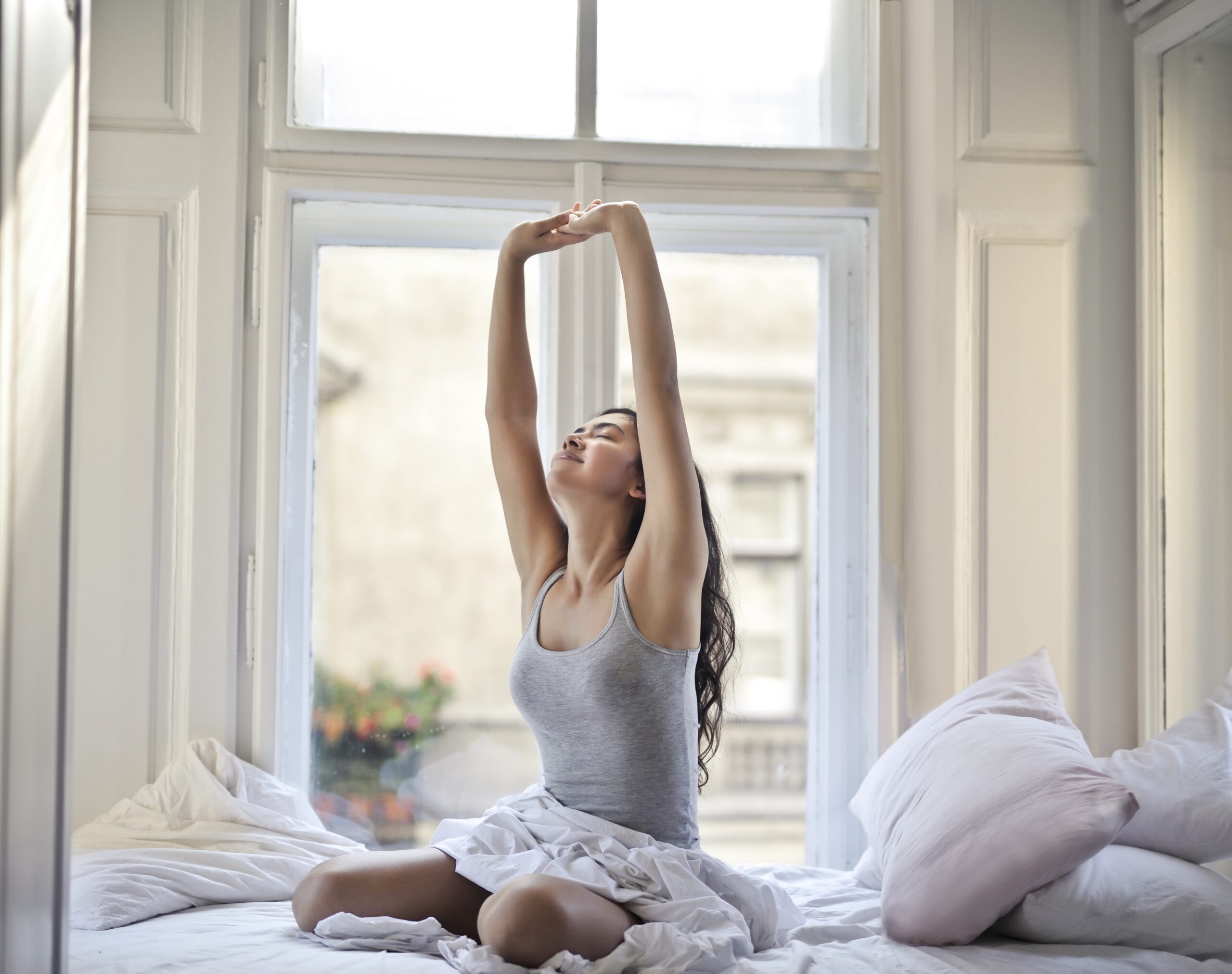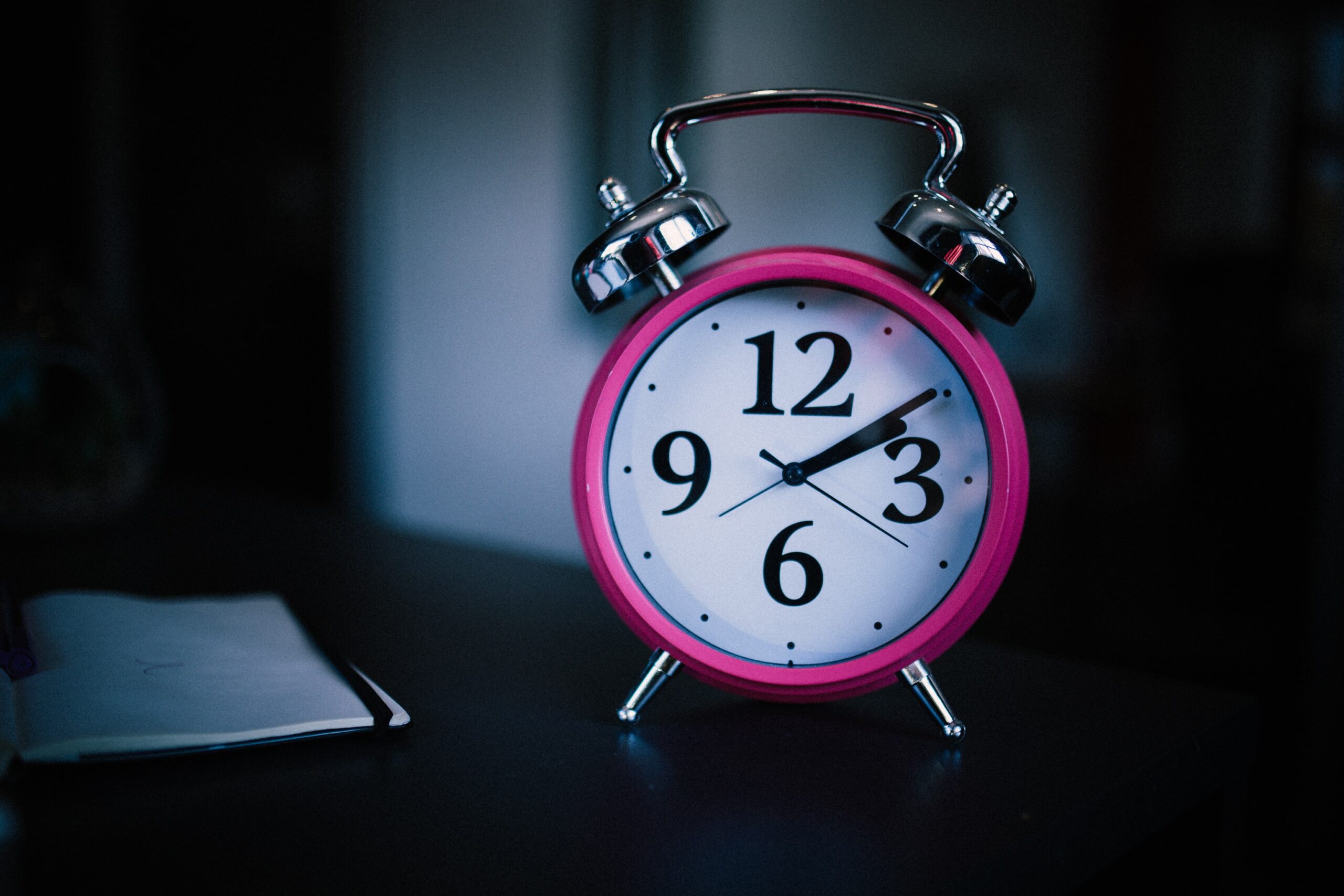Is sleep the key to happiness?
“Happiness consists of getting enough sleep. Just that, nothing more.”
— Robert A. Heinlein, Starship Troopers
Ask any new parent or anyone suffering sleep deprivation, and they will tell you just how damaging a lack of sleep can be to both their mental and physical wellbeing. We know sleep is important, but why?
Why is sleep so important?
For a start, poor sleep is shown to lead to overeating and therefore a higher body weight. In fact, those with shorter sleep times are 55% more likely to develop obesity! The simple reason being that poor sleep messes with our hormones, leading to an increased appetite, and leaving us reaching for the biscuit tin! It is also shown to boost our immune system and reduce the likelihood of heart attack and stroke.
And it’s not just about how our physical wellbeing. A good night’s sleep is also proven to improve our concentration and productivity. Research into medical interns and their working patterns showed that those working extended shifts of 24 hours or more, made 36% more serious medical errors when compared to those working shorter shifts with more sleep. This comes as no great surprise when research shows that poor sleep can mimic the effects of drunkenness!
And what about our ‘happiness’? Sadly, poor sleep is also linked to depression – some 90% of people with depression have notable sleep issues. We know it’s easier said done, but if you are experiencing any type of depression, it’s important to get the optimal amount of sleep if you can.
What’s the optimal amount of sleep?
Well, that depends on who you ask, and of course, the current scientific thinking. It’s broadly accepted that for 18-64-year-olds, 7-9 hours of sleep a night is what we should all be aiming for. (I definitely need a minimum of 7 hours’ sleep – 8 is when I am at my best!) But everyone is different, and it depends on several factors including your age, general health and lifestyle, and occupation. For instance, teenagers benefit from 9-11 hours sleep, whereas for the 65+ age bracket, it’s more like 7-8 hours.
The easiest way to assess whether you are getting enough sleep to is to ask yourself the following: Do you feel happy and productive after 7 hours sleep? Or conversely, if you’re particularly active in the day, do you feel more ‘awake’ after playing sport, or working? Do you rely on caffeine to boost your energy levels during the day? If so, you may find a healthier way of boosting your energy is to go to bed earlier and cut out some of your daily caffeine.
And don’t forget, power naps are also a great way of topping up if you’ve had a particularly restless or short night’s sleep – they can leave you feeling really refreshed. However, these should only be around 20 minutes, and certainly no longer than 30.

What is ‘sleep hygiene’ and why is it important?
What if you’d love to get more sleep but you just can’t? According to research from the Economic and Social Research Council, the number of us suffering sleep loss in the UK soared from one-in-six to one-in-four as a direct result of the pandemic and associated lockdowns. So, what can be done?
Sleep hygiene refers to everything involved in the process of getting a good night’s sleep, from having a calming bedroom environment to following the optimal pre-bedtime routine.
Here are some of our top tips to help ensure you fall asleep and stay asleep!
- Look at your daily activities – are you getting plenty of daylight and physical activity?
- Does your bedroom cultivate sleep? – is it cool enough, do you have the right mattress, and can you block out all light?
- Is your pre-bedtime routine consistent? For example, do you always take time out to have a bath and dim the lights? (Remember to switch off all technology at least 30 minutes before you go to bed!)
- Do you have a consistent sleep schedule? It might be surprising to hear, but having a lie-in at the weekend isn’t a good thing for your body! Whatever day of the week it is, waking at the same time helps ensure a good sleep rhythm. And don’t be tempted to forgo sleep for something else. Sleep should always be at the top of your priority list.
Sleep and exercise go hand in hand!
Don’t forget, it’s not just sleep that contributes to a healthy lifestyle and improved energy levels. A combination of exercise and sleep (and of course, diet) is the key to ensuring our health and well-being. So, if you’re struggling to get enough sleep, or good-quality sleep, don’t ignore it. Instead, consider how your exercise routine can be can improved to help you sleep better – and vice versa.
Why not start today and experience the benefits Pilates can bring in improving your sleep? Check out our 2021 classes here, where you will find a full timetable of studio and online courses for all ages and abilities.
